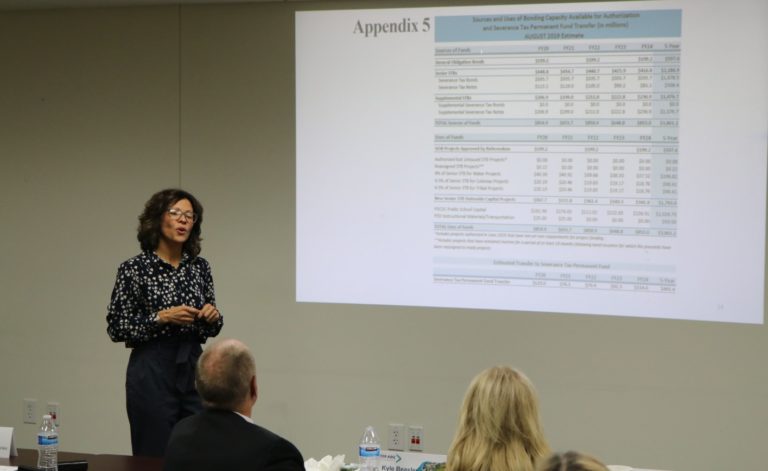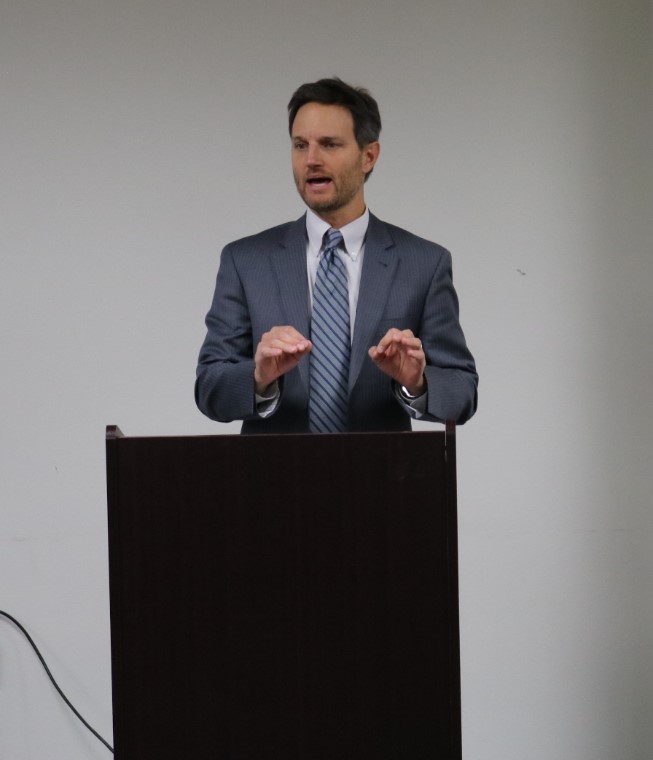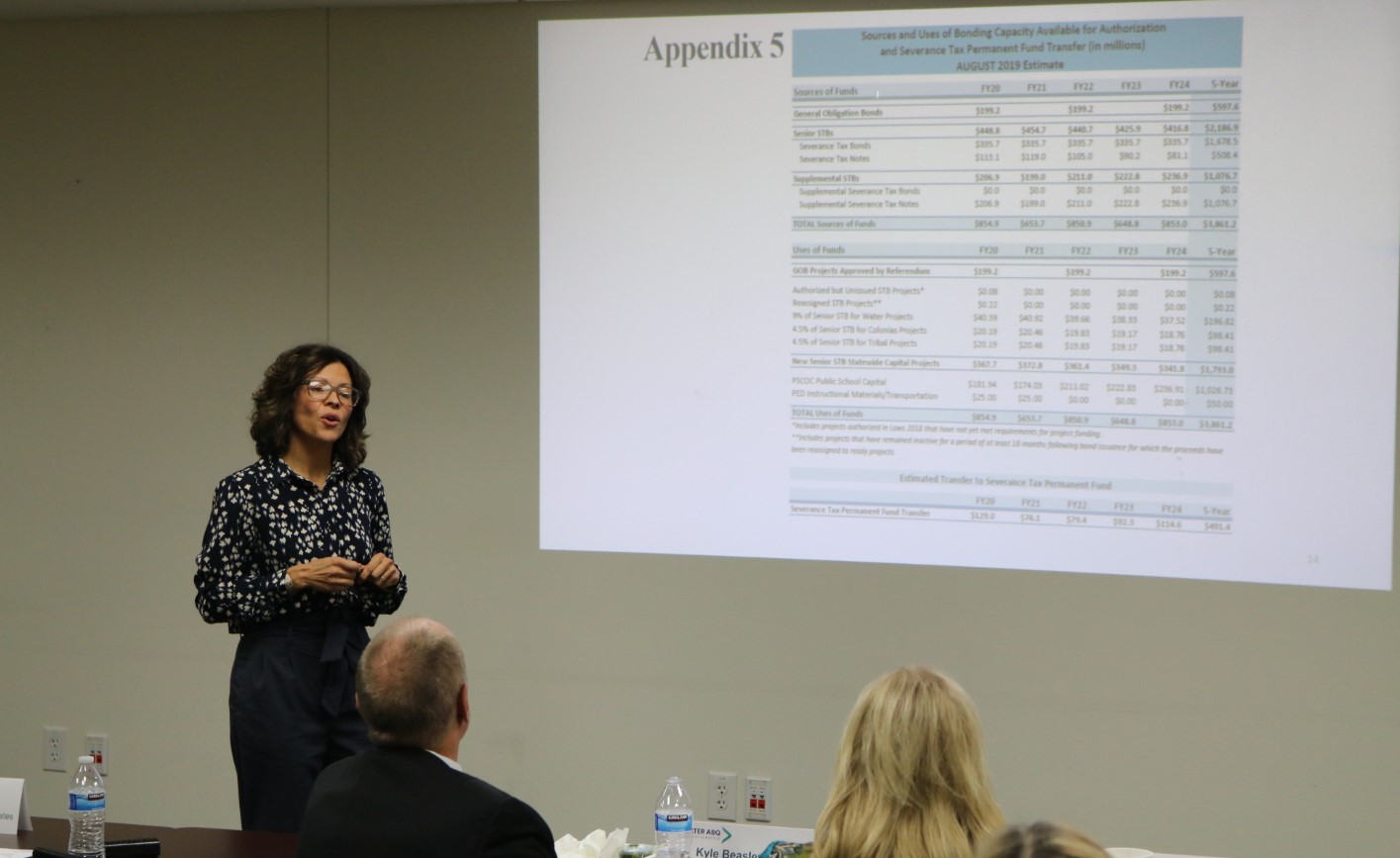
Department of Finance and Administration Secretary Olivia Padilla-Jackson presents to the Chamber’s Board on the state’s budget projections
With the 2020 legislative session fast approaching, the Chamber’s October Board meeting featured a pair of speakers who addressed key topics likely to be addressed by legislators, including a new permanent fund to support the programs of the newly established Early Child Education and Care Department.
Secretary Olivia Padilla-Jackson of the New Mexico Department of Finance and Administration covered a broad range of budgetary and revenue topics in her presentation to the Board, including the proposed early childhood permanent fund, which may be an alternative to the controversial attempts to raid the Land Grant Permanent Fund for early childhood funding in recent years. Continued high revenue growth generated primarily by investments in oil and gas extraction in the Permian Basin offer the legislature a rare opportunity to set aside funds for a significant base for such a fund, allowing it to begin to generate dividends that could support expanded pre-kindergarten programming, home visiting, and other programs for children under the age of five.
Secretary Padilla-Jackson also offered a glimpse at the state’s new dashboard for capital outlay projects, and reviewed some of the latest revenue and budgetary projections made by the Legislative Finance Committee. Board members had several questions about the possibility of improvements to the capital outlay process, and Padilla-Jackson indicated that increased state transparency on the status of those projects could help push state leaders to ensure that more funding goes to “shovel ready” projects that would benefit their communities.
Michael Weinberg, the Thornburg Foundation’s Early Childhood Education Policy Officer, followed Secretary Padilla-Jackson to further elaborate on the state’s progress in early childhood programs and funding. He echoed the earlier sentiment that the state was in a fiscal position that afforded unique opportunities for creative long-term investments. He also noted that the Legislative Finance Committee had expressed a desire to look very closely at the efficacy and return on investment of existing programs to determine the viability and targeting of further funding.

Michael Wienberg, Early Childhood Education Policy Officer for the Thornburg Foundation, discusses developments in the early childhood policy arena with the Chamber’s Board




